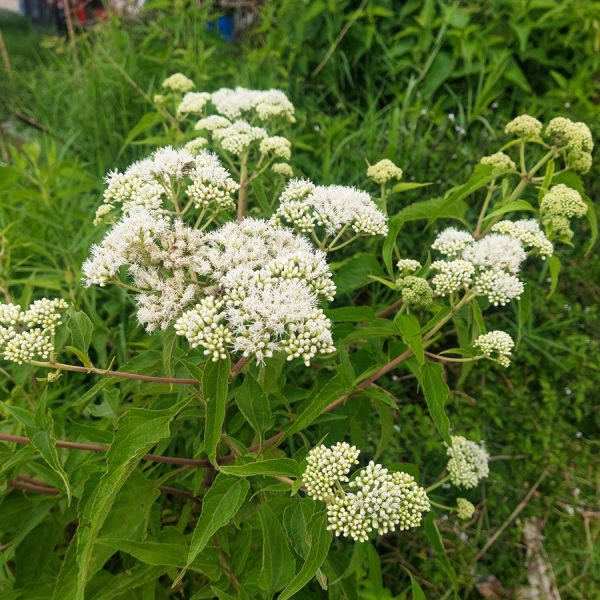ADHD is a complex condition characterised by an array of behavioural traits that can include inattention, hyperactivity and impulsivity, which can impact daily life and wellbeing.
Understanding ADHD

What is ADHD?
Attention deficit hyperactivity disorder (ADHD) is a neurodevelopmental condition, meaning that rather than being a disorder as its name suggests, it is a complex neurotype involving a range of behavioural traits (1).
It can affect individuals differently, impacting their lives practically, behaviourally and psychologically. Symptoms usually appear in childhood, before 12 years of age, and up to 85% of patients experience symptoms into adulthood (2,3).
ADHD can present in various ways, detailed in “signs and symptoms”.
Prevalence, diagnosis and treatment
Today, worldwide ADHD prevalence in children is 5% and 3–4% in adults (4).
While brain imaging scans and other neurophysical markers are associated with ADHD, it is diagnosed clinically through a case history of the patient, using the DSM 5 criteria:
The patient displays characteristics of one of three ADHD subtypes:
- Predominantly inattentive
- Predominantly impulsive or hyperactive
- Combination type
Other criteria include:
- The onset of symptoms is (usually) before age 12
- Symptoms present in multiple settings: school, work, home
- Symptoms cause significant impairment in social, occupational or academic function
- The disorder is not explained by any other behavioural disorder.
Primary treatment is pharmaceutical, with first-line options being central nervous system (CNS) stimulants: Methylphenidate (MPH), lisdexamfetamine or dexamphetamine, non-stimulant atomoxetine (a serotonin-norepinephrine reuptake inhibitor or SNRI), guanfacine, a selective α2A adrenergic receptor agonist or modafinil, a non-amphetamine narcolepsy treatment (5–9).
Non-pharmacological treatment options are limited, with patients having variable access to funding for coaching or online therapy services (10,11). Despite this lack of support, especially in resource-poor settings, the World Health Organization recommends that children and adolescents receive “psychosocial interventions” alongside first-line treatments (12). Equally, NICE recommends that people with ADHD “have a comprehensive, holistic…treatment plan that addresses psychological, behavioural and occupational or educational needs” (13).
How does ADHD work?

Characteristics
ADHD is characterised by symptoms like inattention, hyperactivity and impulsivity (the most commonly associated — and researched — traits, but by no means all) and may impact multiple aspects of a person’s life (14–16). Not all symptoms will always occur in all individuals with ADHD (2,3). ADHD often co-occurs with mental health conditions including anxiety, depression or behavioural disorders (14–16). For example, 75% of adults with ADHD experience some degree of co-occurring mental health condition (2,3).
It’s important to note that not all ADHD characteristics are inherently negative, though. Research shows that traits and characteristics such as the energy, creativity, hyperfocus, unconventional thinking styles, pursuit of new experiences, growth mindset and resilience that often accompany people with ADHD can have positive impacts on the lives of those living with the condition, although the effects may vary depending on the specific context in which it is experienced and on the individual (17).
Co-occurence
There is increasing recognition of the co-occurence of other neurotypes and conditions alongside ADHD including autism spectrum disorder (ASD), Tourette’s, dyslexia, depression, dyspraxia and obsessive compulsive disorder (OCD) (1,18). Of the adults with ADHD, 75% experience a range of co-occurring mental health disorders (2,3). This intersection of multiple conditions has real implications for those living with ADHD.
A 2025 study published in the British Journal of Psychiatry (BJP) found that the life expectancy of ADHD males is 6.8 years shorter than those without, and that females’ is 8.6 years shorter. The co-occurring mental health conditions may be in part responsible for the shorter lifespan of those with ADHD, although ADHD doesn’t shorten life expectancy directly (19).
A 2025 research study identified that people diagnosed with ADHD who have a menstrual cycle are three times more likely to have premenstrual dysphoric disorder (PMDD) and two 2021 studies found evidence suggesting generalised joint hypermobility and connective tissue pathology are associated with ADHD (20–23)
ADHD subtypes
These findings show that through associated conditions’ pathophysiology and within its own broad range of manifestations, ADHD can and does reach far beyond the ‘classic’ symptoms of inattention, hyperactivity and impulsiveness. Far more ADHD subtypes than the main recognised three (inattentive, hyperactive-impulsive, and combined types) may exist, and research is pointing ever more in this direction (24).
Gender
Women and girls with ADHD typically present differently from men and boys, which can be problematic since diagnostic criteria are designed around males, meaning females are often underdiagnosed and under supported (25). Symptom severity for hyperactive-impulsive symptoms is lower in females than males, and inattention can present more as disorganisation, overwhelm, lacking in effort or low motivation (rather than the ‘classic’ inattentive male symptoms such as trouble focusing or appearing not to listen). Common co-occurring conditions might be internalised in females, leading to fewer referrals, lower academic attainment outcomes, or misdiagnosis (25,26).
Understanding the root of ADHD

The complexity of ADHD’s neurological picture reflects its complex symptom presentation.
Brain development
ADHD traits are a result of differences in early brain development that occur during pregnancy or in infancy, and can be genetic in origin or caused by physical or birth trauma, infection, immune disorders or nutritional status (1).
The structure of an ADHD brain differs from neurotypical brains in several ways.
The frontal lobe, limbic system and basal ganglia are all impacted, leading to a range of challenges in planning, memory, decision-making, attention, impulsivity and focus (27).
Nervous system
Nervous system regulation and neurotransmitter signalling, involving dopaminergic, noradrenergic, glutamatergic and serotonergic pathways, is disrupted in ADHD, and oxidative stress and inflammation both occur — in the central nervous system (CNS) and systemically (throughout the body) and can exacerbate symptoms (16).
Dopamine and norepinephrine
Primary neurotransmitters involved in ADHD are dopamine and norepinephrine, although glutamate and serotonin are also involved. Dopamine regulates our mood, memory, motivation and attention, and supports emotional regulation, but reduced dopamine transporter (DAT) expression in people with ADHD means lower levels of dopamine in cells, and therefore increased dysregulation of the functions it usually supports (28,29).
Dopamine is a precursor to norepinephrine, and dysregulated norepinephrine reuptake by cells is understood to contribute to executive dysfunction, inattention and impulsivity in ADHD (30).
Other neurotransmitters
Higher glutamate levels, serotonin and altered GABA levels are also associated with exacerbated symptoms (28,31–34).
Signs and symptoms
ADHD can present with any combination of the following signs and symptoms, and may vary on a daily or even hourly basis, and not all symptoms occur in all people with ADHD (2,3).
Practical (2,3,20,35–39)
- Difficulty managing daily tasks such as washing up, cooking, cleaning
- Difficulty focusing on work or tasks for sustained periods
- Hyperfocus for sustained periods, sometimes forgetting to eat and/or drink or use the bathroom
- Time ‘blindness’, e.g. difficulty being on time and keeping or making appointments
Psychological (2,3,20,35–39)
- Poor mental health or co-existing mental health conditions (anxiety, depression, stress)
- Sleep disturbances
- Poor memory and executive function
- Impaired learning
- Emotional dysregulation
- Low confidence
- Rejection sensitivity dysphoria (RSD)
Behavioural (2,3,20,35–39)
- A lack of inhibition
- Inattentiveness
- Interrupting
- Hyperactivity
- Substance dependency
- Novelty-motivated
- Ideas-driven
- Creativity
Physiological (2,3,20,35–39)
- Fluctuations in energy levels
- Headaches
- Gastrointestinal disturbances
- Cardiovascular health issues
- Fluctuations in weight and appetite
- Connective tissue disorders
Herbs for ADHD
A broad range of herbs have been reviewed for their effects on various aspects of ADHD including hyperactivity, impulsivity, attention, mood and other co-occurring symptoms.
Neurocomplexity is a key feature in ADHD, so it is important not to be reductive when considering herbal treatments — one herb is unlikely to treat most or all ADHD presentations, and research suggests this is the case (31,34,40,41).
Herbs work via a variety of different molecular pathways and could be used in combination or singly for ADHD subtypes and/or co-occurring conditions (31,42,43).
Here are some herbs for ADHD treatment based on randomised clinical trial (RCT) evidence:

Brahmi (Bacopa monnieri)
Bacosides found in brahmi are able to cross the blood brain barrier, and can modulate gamma-aminobutyric acid (GABA) and N-methyl-D-aspartate (NDMA) glutamate receptors, making this herb supportive for memory improvement and reducing inflammation (43).
Valerian (Valeriana officinalis)
Valerenic acid found in valerian causes increased dopamine production and a calming effect (43).
Passionflower (Passiflora incarnata)
Passionflower acts as a GABA receptor agonist and exerts a calming effect on the nervous system (44,45).
Saffron (Crocus sativus)
Saffron has been shown to increase tryptophan availability in the brain (44,45).
Ginseng (Panax ginseng)
Ginseng shows moderate improvements in attention and impulsivity, and strong improvements in cognitive function in ADHD patients (43).
Rosemary (Salvia rosmarinus)
Rosemary has high antioxidant levels which also stimulate nerve growth factor (NGF) and inhibits acetylcholinesterase activity, which work to improve memory, so could be a useful factor in ADHD treatment (31,46).
Turmeric (Curcuma longa)
A powerful anti-inflammatory herb, turmeric could play a role in reducing CNS and systemic inflammatory biomarkers in ADHD patients due to its high levels of anti-inflammatory compounds like curcumin (47–49). It is also a neurotrophorestorative, which is helpful in ADHD where neurological oxidation is implicated (50).
Holistic solutions

Diet
Inflammatory foods are linked with exacerbation of ADHD symptoms, as are altered nutrient levels, and whilst dietary research on ADHD is still emerging, it appears healthy eating is associated with fewer symptoms (51). Research shows gut microbiome disruption correlates with symptoms, so management of gut microbiota could also support symptom reduction (52).
Exercise
Evidence supports aerobic, strength-based and mind-body exercise for reducing neuroinflammation and brain health (53).
Supplements
Whilst there are limited studies on supplementation for ADHD, a range of vitamins and minerals aid short-term memory, slow cognitive decline in Alzheimer’s patients, with antioxidant supplementation showing most promising results (53). Since ADHD involves neuroinflammation, there is a case for further research into antioxidant supplementation for ADHD.
Behavioural therapies
There is limited access to behavioural therapy, but studies suggest combined cognitive and pharmaceutical treatment increases efficacy (54).
Practical support
Practical measures can be of enormous help in symptom management. Apps, reminders, daily self check-ins, body doubling for task management and digital planners are some technologies now at our disposal (55).
Many people (adults and children alike) with ADHD benefit from combination support alongside flexibility in work, home or school environments to allow them to flourish (56,57).
Individuals may benefit from formal diagnosis or not, and many people explore and find a mix of treatments that works for them and their unique neurotype as they work to understand their needs (58).
References
- What is neurodiversity?. ADHD Aware. Accessed August 1, 2025. https://adhdaware.org.uk/what-is-adhd/neurodiversity-and-other-conditions/
- Marios Adamou. Attention deficit hyperactivity disorder in children. BMJ Best Practice. January 20, 2025. https://bestpractice.bmj.com/topics/en-gb/142
- Marios Adamou. Attention deficit hyperactivity disorder in adults. BMJ Best Practice. January 20, 2025. https://bestpractice.bmj.com/topics/en-gb/814
- National Institute for Health and Care Excellence (NICE). Attention deficit hyperactivity disorder: How common is it? CKS NICE. October 2024. Accessed November 14, 2024. https://cks.nice.org.uk/topics/attention-deficit-hyperactivity-disorder/background-information/prevalence/
- Connelly D. Special report: charting the rise in ADHD prescribing. The Pharmaceutical Journal. July 27, 2023. Accessed November 16, 2024. https://pharmaceutical-journal.com/article/feature/special-report-charting-the-rise-in-adhd-prescribing
- Greenblatt K, Adams N. Modafinil. In: StatPearls. StatPearls Publishing; 2024. Accessed November 16, 2024. http://www.ncbi.nlm.nih.gov/books/NBK531476/
- NHS. Attention deficit hyperactivity disorder (ADHD) – Treatment. nhs.uk. December 24, 2021. Accessed November 16, 2024. https://www.nhs.uk/conditions/attention-deficit-hyperactivity-disorder-adhd/treatment/
- NPS MedicineWise. Guanfacine (Intuniv) for attention deficit hyperactivity disorder. NPS MedicineWise. October 18, 2019. Accessed November 16, 2024. https://www.nps.org.au/radar/articles/guanfacine-intuniv-for-attention-deficit-hyperactivity-disorder
- Magnus W, Anilkumar AC, Shaban K. Attention Deficit Hyperactivity Disorder. In: StatPearls. StatPearls Publishing; 2025. Accessed February 23, 2025. http://www.ncbi.nlm.nih.gov/books/NBK441838/
- Psychiatry UK. ADHD support services. Psychiatry UK. Accessed November 16, 2024. https://psychiatry-uk.com/adhd/adhd-support-services/
- Young S, Asherson P, Lloyd T, et al. Failure of healthcare provision for Attention-Deficit/Hyperactivity Disorder in the United Kingdom: A consensus statement. Front Psychiatry. 2021;12:649399. https://doi.org/10.3389/fpsyt.2021.649399
- World Health Organization. Mental Health Gap Action Programme (mhGAP) Guideline for mental, neurological and substance use disorders. World Health Organization; 2023.
- National Institute for Health and Care Excellence (NICE). Overview Attention Deficit Hyperactivity Disorder: diagnosis and management guidance . March 14, 2018. Accessed August 1, 2025. https://www.nice.org.uk/guidance/ng87
- Becker SP, Luebbe AM, Langberg JM. Co-occurring mental health problems and peer Functioning Among Youth with Attention-Deficit/Hyperactivity Disorder: A Review and recommendations for future research. Clin Child Fam Psychol Rev. 2012;15(4):279-302. https://doi.org/10.1007/s10567-012-0122-y
- Kim Y, Cho IH, Cho SH. Effect of ginseng and ginsenosides on attention deficit hyperactivity disorder: A systematic review. J Ginseng Res. 2024;48(5):437-448. https://doi.org/10.1016/j.jgr.2024.05.006
- Turiaco F, Cullotta C, Mannino F, et al. Attention Deficit Hyperactivity Disorder (ADHD) and Polyphenols: A systematic review. Int J Mol Sci. 2024;25(3):1536. https://doi.org/10.3390/ijms25031536
- Nordby ES, Guribye F, Nordgreen T, Lundervold AJ. Silver linings of ADHD: a thematic analysis of adults’ positive experiences with living with ADHD. BMJ Open. 2023;13(10):e072052. https://doi.org/10.1136/bmjopen-2023-072052
- Wang S, Stewart TM, Ozen I, Mukherjee A, Rhodes SM. Rates of Depression in Children and Adolescents With ADHD: A Systematic review and meta-analysis. J Atten Disord. Published online June 27, 2025:10870547251341597. https://doi.org/10.1177/10870547251341597
- O’Nions E, Baou CE, John A, et al. Life expectancy and years of life lost for adults with diagnosed ADHD in the UK: matched cohort study. Br J Psychiatry. 2025;226(5):261-268. https://doi.org/10.1192/bjp.2024.199
- Glans M, Bejerot S, Humble M, Elwin M, Thelin N. Association between adult adhd and generalised joint hypermobility, with and without systemic manifestations: A case-control study. Eur Psychiatry. 2021;64(Suppl 1):S89. https://doi.org/10.1192/j.eurpsy.2021.263
- Kindgren E, Quiñones Perez A, Knez R. Prevalence of ADHD and Autism Spectrum Disorder in children with hypermobility spectrum disorders or hypermobile Ehlers-Danlos Syndrome: A retrospective study. Neuropsychiatr Dis Treat. 2021;17:379-388. https://doi.org/10.2147/NDT.S290494
- Carroll MB. Hypermobility spectrum disorders: A review. Rheumatol Immunol Res. 4(2):60-68. https://doi.org/10.2478/rir-2023-0010
- Eisenlohr-Moul T. Premenstrual Disorders: A Primer and research agenda for psychologists. Clin Psychol. 2019;72(1):5-17.
- Koseva N. Understanding ADHD: The 3 different types and their symptoms. The ADHD Centre. April 18, 2023. Accessed August 1, 2025. https://www.adhdcentre.co.uk/understanding-adhd-the-3-different-types-and-their-symptoms/
- Martin J, Taylor MJ, Rydell M, et al. Sex‐specific manifestation of genetic risk for attention deficit hyperactivity disorder in the general population. J Child Psychol Psychiatry. 2018;59(8):908-916. https://doi.org/10.1111/jcpp.12874
- List of ADHD Symptoms in young boys. Accessed August 1, 2025. https://www.berkeleypsychiatrists.co.uk/blog/list-of-adhd-symptoms-in-young-boys
- ADDA Editorial Team. Inside the ADHD brain: Structure, function, and chemistry. ADDA – Attention Deficit Disorder Association. December 20, 2022. Accessed August 7, 2025. https://add.org/adhd-brain/
- Choi WS, Wang SM, Woo YS, Bahk WM. Therapeutic efficacy and safety of memantine for children and adults with ADHD with a focus on glutamate-dopamine regulation: A systematic review. Psychiatrist.com. Published online December 25, 2024. Accessed March 20, 2025. https://www.psychiatrist.com/jcp/memantine-children-adults-adhd-glutamate-dopamine-systematic-review/
- Salatino-Oliveira A, Rohde LA, Hutz MH. The dopamine transporter role in psychiatric phenotypes. Am J Med Genet B Neuropsychiatr Genet. 2018;177(2):211-231. https://doi.org/10.1002/ajmg.b.32578
- Ulke C, Rullmann M, Huang J, et al. Adult attention-deficit/hyperactivity disorder is associated with reduced norepinephrine transporter availability in right attention networks: a (S,S)-O-[11C]methylreboxetine positron emission tomography study. Transl Psychiatry. 2019;9(1):1-10. https://doi.org/10.1038/s41398-019-0619-y
- Somner L. Herbal Medicine for Mental Health: Natural treatments for anxiety, depression, ADHD, and more. Citadel Press; 2022.
- Dinu LM, Phattharakulnij N, Dommett EJ. Tryptophan modulation in individuals with attention deficit hyperactivity disorder: a systematic review. J Neural Transm. 2022;129(4):361-377. https://doi.org/10.1007/s00702-022-02478-5
- Ozarowski M, Piasecka A, Paszel-Jaworska A, et al. Comparison of bioactive compounds content in leaf extracts of Passiflora incarnata, P. caerulea and P. alata and in vitro cytotoxic potential on leukemia cell lines. Rev Bras Farmacogn. 2018;28(2):179-191. https://doi.org/10.1016/j.bjp.2018.01.006
- Schulze M, Coghill D, Lux S, Philipsen A. Disentangling ADHD’s presentation-related decision-making—A meta-analytic approach on predominant presentations. Front Psychiatry. 2021;12. https://doi.org/10.3389/fpsyt.2021.519840
- Ptacek R, Weissenberger S, Braaten E, et al. Clinical implications of the perception of time in Attention Deficit Hyperactivity Disorder (ADHD): A review. Med Sci Monit Int Med J Exp Clin Res. 2019;25:3918-3924. https://doi.org/10.12659/MSM.914225
- Ginapp CM, Macdonald-Gagnon G, Angarita GA, Bold KW, Potenza MN. The lived experiences of adults with attention-deficit/hyperactivity disorder: A rapid review of qualitative evidence. Front Psychiatry. 2022;13. https://doi.org/10.3389/fpsyt.2022.949321
- Cornell Health. Counseling & Psychological Services staff. Understanding ADHD. n.d. https://health.cornell.edu/sites/health/files/docs/Understanding-ADHD-guide.pdf
- Csecs JLL, Iodice V, Rae CL, et al. Joint hypermobility links neurodivergence to dysautonomia and pain. Front Psychiatry. 2021;12:786916. https://doi.org/10.3389/fpsyt.2021.786916
- Royal College of Psychiatrists (RCP). ADHD in adults. www.rcpsych.ac.uk. Accessed August 7, 2025. https://www.rcpsych.ac.uk/mental-health/mental-illnesses-and-mental-health-problems/adhd-in-adults
- Gilbert M, Boecker M, Reiss F, et al. Gender and age differences in ADHD symptoms and Co-occurring Depression and Anxiety Symptoms Among Children and Adolescents in the BELLA study. Child Psychiatry Hum Dev. Published online October 18, 2023. https://doi.org/10.1007/s10578-023-01622-w
- Ramtekkar UP, Reiersen AM, Todorov AA, Todd RD. Sex and age differences in Attention-Deficit/Hyperactivity Disorder symptoms and diagnoses: Implications for DSM-V and ICD-11. J Am Acad Child Adolesc Psychiatry. 2010;49(3):217-28.e1-3.
- Dutta T, Anand U, Mitra SS, et al. Phytotherapy for Attention Deficit Hyperactivity Disorder (ADHD): A systematic review and meta-analysis. Front Pharmacol. 2022;13. https://doi.org/10.3389/fphar.2022.827411
- Golsorkhi H, Qorbani M, Sabbaghzadegan S, Dadmehr M. Herbal medicines in the treatment of children and adolescents with attention-deficit/hyperactivity disorder (ADHD): An updated systematic review of clinical trials. Avicenna J Phytomedicine. 2023;13(4):338-353. https://doi.org/10.22038/AJP.2022.21115
- Ahmad S, Azhar A, Tikmani P, et al. A randomized clinical trial to test efficacy of chamomile and saffron for neuroprotective and anti-inflammatory responses in depressive patients. Heliyon. 2022;8(10):e10774. https://doi.org/10.1016/j.heliyon.2022.e10774
- Kalueff AV, Nutt DJ. Role of GABA in anxiety and depression. Depress Anxiety. 2007;24(7):495-517. https://doi.org/10.1002/da.20262
- Fisher C. Materia Medica of Western Herbs. Aeon; 2018.
- Guo C, Wang WJ, Liao YC, et al. Effect and mechanisms of quercetin for experimental focal cerebral ischemia: A systematic review and meta-analysis. Oxid Med Cell Longev. 2022;2022:9749461. https://doi.org/10.1155/2022/9749461
- Misiak B, Wójta-Kempa M, Samochowiec J, et al. Peripheral blood inflammatory markers in patients with attention deficit/hyperactivity disorder (ADHD): A systematic review and meta-analysis. Prog Neuropsychopharmacol Biol Psychiatry. 2022;118:110581. https://doi.org/10.1016/j.pnpbp.2022.110581
- Rezaie S, Askari G, Khorvash F, Tarrahi MJ, Amani R. Effects of curcumin supplementation on clinical features and inflammation in migraine patients: A double-blind controlled, placebo randomized clinical trial. Int J Prev Med. 2021;12:161. https://doi.org/10.4103/ijpvm.IJPVM_405_20
- Gregory J, Vengalasetti YV, Bredesen DE, Rao RV. Neuroprotective herbs for the management of Alzheimer’s Disease. Biomolecules. 2021;11(4):543. https://doi.org/10.3390/biom11040543
- Pinto S, Correia-de-Sá T, Sampaio-Maia B, Vasconcelos C, Moreira P, Ferreira-Gomes J. Eating patterns and dietary interventions in ADHD: A narrative review. Nutrients. 2022;14(20):4332. https://doi.org/10.3390/nu14204332
- Payen A, Chen MJ, Carter TG, Kilmer RP, Bennett JM. Childhood ADHD, Going beyond the brain: A meta-analysis on peripheral physiological markers of the heart and the gut. Front Endocrinol. 2022;13:738065. https://doi.org/10.3389/fendo.2022.738065
- Rao RV, Subramaniam KG, Gregory J, et al. Rationale for a multi-factorial approach for the reversal of cognitive decline in Alzheimer’s Disease and MCI: A Review. Int J Mol Sci. 2023;24(2):1659. https://doi.org/10.3390/ijms24021659
- Li Y, Zhang L. Efficacy of Cognitive Behavioral Therapy Combined with Pharmacotherapy versus pharmacotherapy alone in ddult ADHD: A systematic review and Meta-Analysis. J Atten Disord. 2024;28(3):279-292. https://doi.org/10.1177/10870547231214969
- 6 Online ADHD Management Tools for Adults – ADDA – Attention Deficit Disorder Association. Accessed August 8, 2025. https://add.org/adhd-tools-for-adults/
- ADHD in adults: 4 things to know – National Institute of Mental Health (NIMH). Accessed August 8, 2025. https://www.nimh.nih.gov/health/publications/adhd-what-you-need-to-know
- CDC. Treatment of ADHD. Attention-Deficit / Hyperactivity Disorder (ADHD). October 25, 2024. Accessed August 8, 2025. https://www.cdc.gov/adhd/treatment/index.html
- ADHD UK. Diagnosis pathways for adult ADHD. Accessed August 8, 2025. https://adhduk.co.uk/diagnosis-pathways/




























